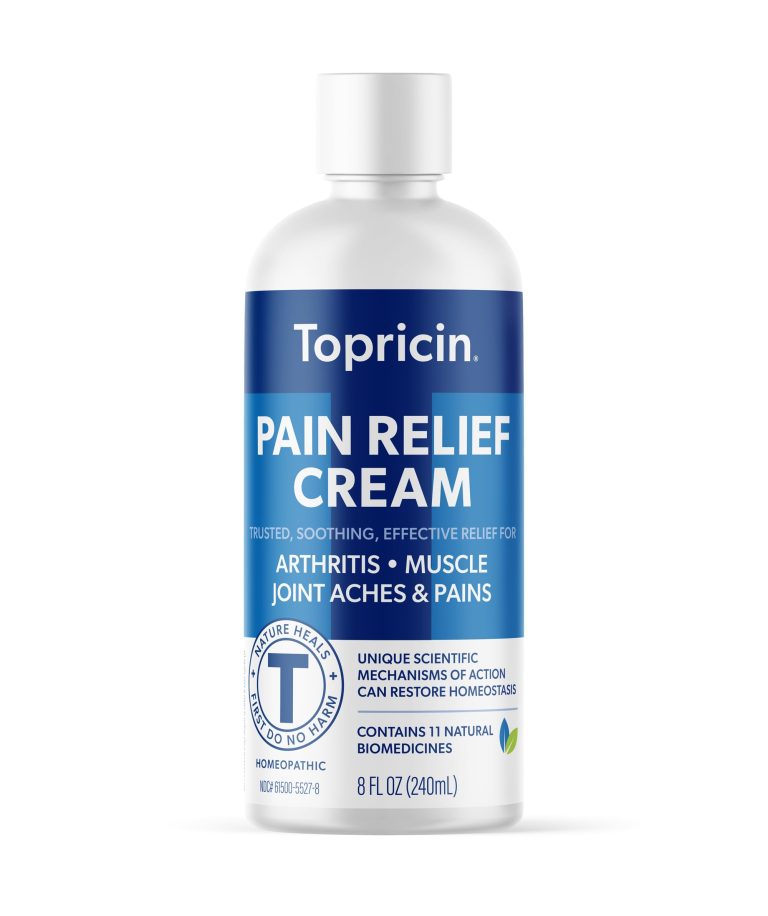Best Gastric Medicine in Bangladesh – Natural Treatment 2023
The best medicine for a gastric in Bangladesh problem is proton pump inhibitors (ppis). Ppis work by reducing stomach acid production, providing relief from gastric symptoms.
Gastric problems, also known as dyspepsia or indigestion, can cause discomfort and pain in the upper abdomen. Common symptoms include bloating, nausea, and heartburn. In addition to ppis, lifestyle changes, such as avoiding trigger foods, eating smaller meals, and managing stress, can also help alleviate gastric symptoms.
It is important to consult with a healthcare professional for a proper diagnosis and to determine the best treatment plan for your specific gastric problem. Remember to follow their advice and take medication as prescribed to effectively manage your symptoms.

Credit: pharmeasy.in
Lifestyle Factors
Effective lifestyle factors play a crucial role in managing gastric problems. Incorporating a balanced diet, regular exercise, stress management techniques, and sufficient sleep can be the best medicine for alleviating gastric discomfort.
Gastric problems are often caused by various lifestyle factors that we encounter in our day-to-day lives. These factors can significantly impact our digestive system and result in discomfort and pain. In this section, we will explore three common lifestyle factors that contribute to gastric issues: stressful routine, poor diet, and lack of exercise.
Stressful Routine:
- Busy schedules and stressful routines can lead to an imbalance in our digestive system, triggering gastric problems. Here are some key points to consider in relation to a stressful routine:
- Overworking and skipping meals: When stressed, we tend to prioritize work over our health, leading to irregular eating patterns and skipping meals, which can disrupt the digestive process.
- Increased production of stomach acid: Stress activates the body’s fight-or-flight response, prompting the release of stress hormones like cortisol. This can result in an overproduction of stomach acid, causing acidity and heartburn.
- Slower digestion: Chronic stress can slow down digestion, causing food to remain in the stomach for a longer duration, leading to bloating, gas, and discomfort.
Poor Diet:
- Your eating habits play a crucial role in maintaining a healthy digestive system. Here are a few ways a poor diet can contribute to gastric problems:
- Consuming fatty and fried foods: High-fat and greasy foods are hard to digest, leading to delayed emptying of the stomach. This can cause indigestion, bloating, and acid reflux.
- Excessive consumption of spicy food: Spicy foods can irritate the lining of the stomach, triggering acid reflux and gastritis.
- Lack of fiber intake: Insufficient fiber in the diet can lead to constipation, which in turn can cause gas and bloating.
- Skipping meals or eating irregularly: Irregular eating patterns can disrupt the natural digestive process, leading to acid reflux and other gastric issues.
Lack Of Exercise:
- Physical activity is not only essential for maintaining overall health but also for promoting healthy digestion. Here’s how a sedentary lifestyle can contribute to gastric problems:
- Sluggish digestion: Lack of movement and exercise can slow down digestion, making it difficult for the stomach to empty properly. This can result in discomfort, bloating, and constipation.
- Weakening of the digestive muscles: Regular exercise helps strengthen the muscles in the digestive tract, allowing food to move through smoothly. Without exercise, these muscles may weaken, leading to slower digestion and gastric problems.
Remember, making small changes to your lifestyle can have a significant impact on your digestive health. Addressing stressful routines, adopting a balanced diet, and incorporating regular exercise into your daily routine can help alleviate gastric problems and promote a healthier digestive system.
Medical Conditions
Looking for the best medicine to alleviate gastric problems? Find effective solutions to your medical condition with our recommended remedies, providing relief from various gastric issues. Improve your digestive health with our expert-recommended medications.
Gastroesophageal Reflux Disease (Gerd)
Gastroesophageal reflux disease (gerd) is a medical condition that occurs when stomach acid flows back into the esophagus, causing discomfort and irritation. Here are some important points to know about gerd:
- Chronic heartburn is the primary symptom of gerd. It is characterized by a burning sensation in the chest, often occurring after meals.
- Regurgitation, where stomach acid or undigested food comes back up into the mouth, is another common symptom of gerd.
- Gerd can be caused by a weak lower esophageal sphincter (les), which normally prevents acid from flowing back up. Other factors such as obesity and certain food triggers can also contribute to gerd.
- Lifestyle changes, such as maintaining a healthy weight, avoiding trigger foods and beverages, and raising the head of the bed, can help manage gerd symptoms.
- Over-the-counter antacids, such as tums or rolaids, can provide temporary relief from heartburn. However, if symptoms persist or worsen, it is recommended to consult a healthcare professional.
Peptic Ulcers
Peptic ulcers are open sores that develop on the lining of the stomach or the upper part of the small intestine. Here are some key points about peptic ulcers:
- The primary cause of peptic ulcers is the presence of a certain type of bacteria called helicobacter pylori (h. pylori) in the stomach. Other factors, such as excessive use of nsaids (nonsteroidal anti-inflammatory drugs) and excessive alcohol consumption, can contribute to the development of ulcers.
- Common symptoms of peptic ulcers include abdominal pain, bloating, nausea, and vomiting.
- Diagnosis of peptic ulcers is usually done through an endoscopy, where a thin tube with a camera is inserted into the digestive tract to examine the ulcers.
- Treatment for peptic ulcers involves a combination of antibiotics to eradicate h. pylori bacteria and medications that reduce stomach acid production.
- Lifestyle changes, such as avoiding spicy foods and managing stress, can also help prevent the recurrence of peptic ulcers.
Gastritis
Gastritis is a medical condition characterized by inflammation of the stomach lining. Here’s what you need to know about gastritis:
- Chronic gastritis can be caused by long-term use of nsaids, excessive alcohol consumption, or infection with h. pylori bacteria.
- Acute gastritis can be triggered by stress, certain medications, or consuming contaminated food or beverages.
- Symptoms of gastritis may vary but can include abdominal pain, nausea, vomiting, bloating, and loss of appetite.
- Treatment of gastritis depends on the underlying cause. H. pylori infection requires a combination of antibiotics, while lifestyle modifications, such as avoiding irritants like alcohol and spicy foods, can alleviate symptoms.
- In severe cases, medications to reduce stomach acid production may be prescribed to provide relief and promote healing.
Remember, if you are experiencing symptoms related to any of the medical conditions mentioned, it is important to consult a healthcare professional for an accurate diagnosis and appropriate treatment.
Abdominal Discomfort
Abdominal discomfort can be relieved with the best medicine for gastric problems. Experience relief from gastric pain and discomfort with this effective solution.
Bloating
Abdominal bloating is a common symptom of gastric problems that affects many individuals. It is characterized by the feeling of fullness and tightness in the abdomen, often accompanied by gas and excessive belching. This uncomfortable condition can be caused by various factors, including:
- Overeating: Consuming large meals or eating too quickly can lead to bloating as the stomach becomes distended with excess food.
- Gas accumulation: Bacteria in the gut can produce gas during the digestion process, leading to bloating and discomfort.
- Food intolerances: Some individuals may experience bloating after consuming certain foods, such as lactose or gluten, due to intolerance or sensitivity.
- Constipation: When stool builds up in the intestines, it can cause bloating and abdominal discomfort.
To alleviate bloating, you can:
- Eat smaller, more frequent meals: Opting for smaller portions and spacing out your meals can help prevent bloating caused by overeating.
- Avoid trigger foods: Identify any foods that may cause bloating or gas for you personally, and try to limit or avoid them.
- Increase fiber intake: Consuming a diet rich in fruits, vegetables, and whole grains can promote regular bowel movements and decrease bloating caused by constipation.
- Stay hydrated: Drinking enough water can help prevent constipation and promote healthy digestion, reducing the chances of bloating.
- Exercise regularly: Physical activity can stimulate bowel movements and help alleviate bloating.
- Consider probiotics: Probiotic supplements or foods can introduce beneficial bacteria to your gut, aiding digestion and reducing bloating.
Nausea
Nausea, often accompanied by the urge to vomit, is another unpleasant symptom commonly experienced by individuals with gastric issues. It can be caused by various factors, including:
- Gastritis: Inflammation of the stomach lining can lead to feelings of nausea.
- Gastroesophageal reflux disease (gerd): The backward flow of stomach acid into the esophagus can cause nausea, especially when lying down or after eating.
- Gastroparesis: This condition occurs when the stomach muscles do not function properly, leading to delayed emptying and nausea.
- Food poisoning: Consumption of contaminated food can result in nausea and vomiting.
- Medication side effects: Certain medications, especially those used for pain relief or chemotherapy, can cause nausea as a side effect.
To alleviate nausea, you can:
- Avoid triggering foods: Identify any foods or smells that worsen your nausea and try to avoid them.
- Eat smaller, more frequent meals: Having small, bland meals throughout the day can ease nausea caused by an empty stomach.
- Stay hydrated: Sip on clear fluids such as water or herbal tea to stay hydrated and calm your stomach.
- Ginger: Consuming ginger in various forms, such as ginger tea or ginger candies, has been known to provide relief from nausea.
- Acupressure wristbands: These wristbands can apply pressure to specific points on the wrist and help alleviate nausea.
- Medications: Certain over-the-counter or prescription medications may be recommended by a healthcare professional to help manage persistent nausea.
Stomach Pain
Stomach pain is a common complaint among individuals experiencing gastric problems. It can range from mild to severe and may be accompanied by other symptoms like bloating, nausea, or changes in bowel movements. Causes of stomach pain may include:
- Peptic ulcers: These sores in the lining of the stomach or the first part of the small intestine can cause abdominal pain, especially when the stomach is empty.
- Gastritis: Inflammation of the stomach lining can lead to discomfort and pain.
- Gallstones: These hardened deposits in the gallbladder can cause abdominal pain, often after consuming fatty or greasy foods.
- Irritable bowel syndrome (ibs): A chronic digestive disorder that can cause abdominal pain, bloating, and changes in bowel movements.
- Gastroenteritis: Commonly known as the stomach flu, this condition involves inflammation of the stomach and intestines, leading to abdominal pain and diarrhea.
- Appendicitis: Inflammation of the appendix can cause severe pain, usually requiring immediate medical attention.
To manage stomach pain, consider the following:
- Identify trigger foods: Keep a food diary to pinpoint any foods that may exacerbate your stomach pain and try to avoid them.
- Follow a balanced diet: Consuming a well-balanced diet with adequate fiber can promote healthy digestion and reduce stomach discomfort.
- Manage stress: Stress and anxiety can contribute to stomach pain in some individuals, so finding stress-reducing activities or techniques may help alleviate symptoms.
- Over-the-counter pain relievers: Non-prescription pain medications, such as antacids or acid reducers, may provide temporary relief for mild stomach pain.
- Seek medical advice: If stomach pain is severe, persistent, or accompanied by other concerning symptoms, it is essential to consult a healthcare professional for proper diagnosis and treatment.
Remember, everyone’s experience with gastric problems may vary, and it is always advisable to consult a healthcare professional for a proper evaluation and tailored treatment plan.
Digestive Issues
If you’re struggling with gastric problems, the best medicine for relief is available. Discover effective remedies to alleviate digestive issues and improve your overall well-being.
Digestive issues can be uncomfortable and disrupt our daily lives. They often manifest as symptoms such as acid reflux, indigestion, and heartburn. These problems can occur due to various factors, including poor dietary choices, stress, or underlying medical conditions. Fortunately, there are effective medicines available to alleviate these digestive issues.
Let’s explore each of these conditions and the best medicine options for treating them.
Acid Reflux
Acid reflux occurs when the stomach acid flows back into the esophagus, causing a burning sensation in the chest or throat. If left untreated, it can lead to more severe complications. To combat acid reflux, consider the following options:
- Proton pump inhibitors (ppis): Medications like omeprazole and esomeprazole reduce the production of stomach acid, providing relief from acid reflux symptoms.
- H2 blockers: Drugs such as ranitidine and famotidine work by decreasing the amount of acid produced in the stomach, providing relief from acid reflux symptoms.
- Antacids: Over-the-counter antacids like tums and rolaids can provide temporary relief by neutralizing stomach acid. However, they are not suitable for long-term use.
Indigestion
Indigestion, also known as dyspepsia, is characterized by discomfort and pain in the upper abdomen. It can be caused by overeating, consuming fatty or spicy foods, stress, or certain medications. To ease indigestion, consider these options:
- Prokinetics: These medications help the stomach empty more quickly and reduce symptoms of indigestion. Metoclopramide and domperidone are commonly prescribed prokinetics.
- Antacids: As mentioned earlier, antacids can also provide relief from indigestion symptoms by neutralizing stomach acid.
- H2 blockers: Similar to their use for acid reflux, h2 blockers can help alleviate indigestion symptoms by reducing stomach acid production.
Heartburn
Heartburn is a common symptom of acid reflux and indigestion. It presents as a burning sensation in the chest, usually after eating. To manage heartburn, consider the following options:
- Antacids: These over-the-counter medications can provide quick relief from heartburn symptoms by neutralizing stomach acid.
- H2 blockers: By reducing stomach acid production, h2 blockers effectively alleviate heartburn symptoms.
- Proton pump inhibitors (ppis): Ppis help reduce the production of stomach acid, providing long-lasting relief from heartburn.
Remember, it’s essential to consult with a healthcare professional before starting any medication to ensure it’s suitable for you and to discuss potential side effects. Additionally, making lifestyle changes such as maintaining a healthy diet, avoiding trigger foods, and managing stress can also contribute to managing digestive issues effectively.
Digestive issues like acid reflux, indigestion, and heartburn can be managed using various medications. Each condition may require a different approach, but options such as antacids, h2 blockers, and proton pump inhibitors are commonly prescribed. However, it’s crucial to seek medical advice for an accurate diagnosis and proper treatment.
Over-The-Counter Medications in Bangladesh
Over-the-counter medications offer effective relief for gastric problems. From antacids to proton pump inhibitors, these accessible remedies can help alleviate symptoms such as acid reflux, heartburn, and indigestion. Choose the best medicine that suits your needs and find relief quickly.
Are you tired of experiencing gastric problems and looking for over-the-counter medications to alleviate your symptoms? Look no further! In this section, we will explore the best over-the-counter options for treating gastric issues. From antacids to h2 blockers and proton pump inhibitors, we’ve got you covered.
Antacids:
- Antacids are the go-to medication for mild gastric problems and are readily available in most pharmacies and supermarkets.
- These medications work by neutralizing stomach acid and providing quick relief from heartburn, indigestion, and acid reflux.
- Common antacids contain ingredients such as calcium carbonate, magnesium hydroxide, or aluminum hydroxide.
- Antacids are best taken after meals or when symptoms arise, providing immediate relief.
- It’s important to note that antacids may interact with certain medications, so consult with a healthcare professional if you are taking any other medications.
H2 Blockers:
- H2 blockers are another option for managing gastric problems and are slightly stronger than antacids.
- They work by reducing the production of stomach acid, helping to alleviate symptoms and promote healing.
- H2 blockers are available as both over-the-counter and prescription strength, depending on the severity of your condition.
- These medications typically provide relief for up to 12 hours, making them suitable for longer-lasting relief.
- H2 blockers can be taken before meals or at bedtime for optimal results.
- If your symptoms persist after using h2 blockers, it is advisable to seek medical advice for further evaluation.
Proton Pump Inhibitors:
- Proton pump inhibitors (ppis) are the most potent over-the-counter medications for gastric problems.
- They work by blocking the production of acid in the stomach, providing long-lasting relief and allowing the stomach to heal.
- Ppis are generally recommended for more severe cases of gastric problems, such as gastroesophageal reflux disease (gerd).
- These medications need to be taken regularly for optimal results. It is important to follow the recommended dosage and duration as advised by your healthcare provider.
- While ppis are effective in managing symptoms, they may have some potential side effects, so it is always best to consult with a healthcare professional before using them.
When it comes to over-the-counter medications for gastric problems, antacids, h2 blockers, and proton pump inhibitors are the top choices. Antacids provide quick relief, h2 blockers offer longer-lasting effects, and proton pump inhibitors are the most potent option. Remember to consult with a healthcare professional to determine the best option for your specific condition.
Don’t let gastric problems hold you back from enjoying life to the fullest!
Natural Remedies in Bangladesh
Experience relief from gastric problems with the best natural remedies. These remedies, derived from nature, offer effective solutions without any side effects. Say goodbye to discomfort and enjoy a healthier digestive system.
Ginger
Ginger has long been used as a natural remedy for various digestive issues, including gastric problems. Here are some benefits of ginger for gastric problems:
- Soothes upset stomach: Ginger has anti-inflammatory properties that can calm and soothe an upset stomach, reducing symptoms like nausea and indigestion.
- Relieves gas and bloating: Ginger helps in improving digestion and reducing gas and bloating by promoting the release of digestive enzymes.
- Accelerates gastric emptying: Ginger has been shown to speed up the emptying of the stomach, which can help alleviate symptoms of gastric problems.
- Reduces gastric inflammation: The anti-inflammatory compounds present in ginger can help reduce inflammation in the stomach lining, easing discomfort and pain.
Peppermint
Peppermint is another natural remedy that can provide relief from gastric problems. Here’s why peppermint is beneficial:
- Calms stomach muscles: Peppermint contains menthol, which helps relax the muscles of the gastrointestinal tract, providing relief from cramps and spasms.
- Alleviates bloating and gas: Peppermint can help reduce bloating and gas by improving the flow of bile, which aids in the digestion of fats.
- Relieves nausea: The aroma of peppermint has been found to ease nausea, making it an excellent remedy for individuals with gastric issues.
- Soothes heartburn: Peppermint can help relieve heartburn symptoms by reducing the relaxation of the lower esophageal sphincter, preventing the backward flow of stomach acid.
Chamomile Tea
Chamomile tea is a popular herbal remedy known for its calming effects. It can also be beneficial for gastric problems:
- Reduces inflammation: Chamomile tea possesses anti-inflammatory properties that can help reduce inflammation in the stomach and alleviate gastric discomfort.
- Relieves stomach cramps: The relaxing properties of chamomile tea can help ease stomach cramps caused by gastric issues.
- Soothes the digestive system: Chamomile tea has a gentle and calming effect on the digestive system, helping to reduce indigestion and improve overall gut health.
- Promotes better sleep: Getting enough restful sleep is crucial for proper digestion. Drinking chamomile tea before bed can help promote relaxation and improve sleep quality, indirectly benefiting gastric problems.
Remember, these natural remedies can be effective for mild gastric problems, but if your symptoms persist or worsen, it’s essential to consult a healthcare professional for a proper diagnosis and treatment plan.
Lifestyle Changes
Get relief from gastric problems with the best medicine for lifestyle changes. Make small modifications in your daily routine and diet to alleviate symptoms and improve overall digestive health.
Eating Smaller, More Frequent Meals
- Instead of consuming three large meals a day, opt for smaller, more frequent meals to alleviate gastric problems.
- Eating smaller meals helps to prevent the stomach from becoming overly full or overloaded with food, reducing the likelihood of irritation or discomfort.
- Consider dividing your daily calorie intake into five or six smaller meals, ensuring that each meal contains a balance of nutrients necessary for proper digestion.
- Be mindful not to rush through your meals; take your time to chew your food thoroughly, aiding digestion and preventing excessive air intake, which can contribute to gastric issues.
Avoiding Trigger Foods
- Certain foods can trigger or worsen gastric problems and should be avoided to prevent discomfort and irritation.
- Common trigger foods include spicy and fatty foods, citrus fruits, carbonated beverages, coffee, alcohol, chocolate, and onions.
- Each individual may have different trigger foods, so it is crucial to identify the specific foods that cause gastric issues for you and avoid them.
- Keeping a food diary can be helpful in identifying patterns and determining which foods to avoid or limit.
Managing Stress Levels
- Chronic stress can have a negative impact on digestion and worsen gastric problems. Therefore, it is essential to manage stress levels effectively.
- Engaging in relaxation techniques, such as deep breathing exercises, meditation, or yoga, can help reduce stress.
- Regular physical activity also aids in stress reduction and promotes better overall digestion.
- Prioritizing self-care and taking time to engage in activities that bring joy and relaxation can contribute to lower stress levels and improved gastric health.
Remember, making these lifestyle changes can significantly improve gastric problems but consult with a healthcare professional for personalized advice.
Persistent Or Severe Symptoms
Persistent or severe symptoms of gastric problems can be effectively relieved with the best medicine available. Discover the solution to your discomfort and reclaim your digestive health.
When it comes to gastric problems, persistent or severe symptoms should never be ignored. These symptoms may indicate a more serious underlying condition that requires medical attention. Here are some important symptoms that you should be aware of:
Unexplained Weight Loss:
- Sudden and unexplained weight loss can be a worrisome sign when dealing with gastric problems. It is important to pay attention to any drastic changes in your weight, especially if you haven’t made any significant changes to your diet or exercise routine.
- Unexplained weight loss can be a symptom of various digestive disorders, such as peptic ulcers, gastritis, or even certain types of cancers. Consulting a healthcare professional is crucial to identify the cause and receive appropriate treatment.
Vomiting Blood:
- Vomiting blood, also known as hematemesis, is a serious symptom that requires immediate medical attention. The presence of blood in vomit can indicate bleeding in the gastrointestinal tract.
- The causes of vomiting blood can range from minor issues like stomach ulcers or the presence of esophageal varices to more severe conditions like gastritis or gastrointestinal tumors. Early diagnosis and treatment are crucial to prevent further complications.
Difficulty Swallowing:
- Difficulty swallowing, or dysphagia, can be a distressing symptom experienced by individuals with gastric problems. It can make eating and drinking uncomfortable and may lead to unintended weight loss.
- Gastric conditions like gastroesophageal reflux disease (gerd), esophagitis, or even esophageal narrowing can cause difficulty swallowing. Prompt evaluation by a healthcare professional is necessary to determine the underlying cause and provide appropriate treatment.
Remember, if you experience persistent or severe symptoms related to your gastric problem, it is essential to seek medical evaluation. Ignoring these symptoms can lead to complications and delay in treatment. Don’t hesitate to consult a healthcare professional who can provide you with the best course of action based on your specific condition.
Duration Of Symptoms
The duration of symptoms for gastric problems can vary from person to person. It is best to consult with a healthcare professional to determine the most suitable medicine for effective relief.
Symptoms Lasting More Than A Week:
Experiencing gastric problems can be uncomfortable and disrupt your daily routine. If you find that your symptoms persist for more than a week, it is essential to pay attention and take appropriate action. Here are some things to consider:
- Consult a healthcare professional: When your gastric problems continue beyond a week, it is advisable to seek medical advice. A healthcare professional can evaluate your condition and provide you with the necessary guidance and treatment options.
- Underlying medical conditions: Prolonged gastric symptoms can indicate an underlying medical condition that needs attention. Conditions such as gastroesophageal reflux disease (gerd), peptic ulcers, or irritable bowel syndrome (ibs) may require specialized treatment.
- Lifestyle modifications: Assessing your lifestyle habits can also be beneficial. Factors such as diet, stress levels, and physical activity can contribute to gastric problems. Make note of any triggers that worsen your symptoms and consider making appropriate changes.
- Medication adjustments: If you are already taking medications for gastric issues, consult your healthcare professional to evaluate their effectiveness. Adjustments in dosages or switching to alternative medications may be necessary for prolonged relief.
- Monitoring your symptoms: Keep track of your symptoms in a journal or diary. Note any patterns or changes in severity over time. This information can be valuable during your consultation with a healthcare professional.
Frequent Recurrence Of Gastric Problems:
Experiencing frequent recurrence of gastric problems can be frustrating and impact your quality of life. Here are some important points to consider if you find yourself dealing with recurring symptoms:
- Identify triggers: Pay attention to potential triggers that may be causing your gastric problems to recur. These triggers can vary from person to person and may include certain foods, stress, lack of sleep, or specific medications. By identifying and avoiding these triggers, you may reduce the frequency of your symptoms.
- Maintain a healthy diet: Eating a well-balanced diet is crucial for managing gastric issues. Include plenty of fruits, vegetables, whole grains, and lean proteins in your meals. Avoid spicy, greasy, or high-fat foods that can worsen your symptoms. It may also be helpful to eat smaller, more frequent meals rather than large meals.
- Stress management: Stress can be a significant contributing factor to recurring gastric problems. Find healthy ways to manage stress, such as exercise, meditation, or engaging in hobbies that relax you. Consider incorporating stress-reducing activities into your daily routine.
- Medication review: If you are taking medication for your gastric problems, consult with your healthcare professional to ensure it is suitable for long-term use. They may recommend adjustments or alternative medications to manage recurring symptoms effectively.
- Regular follow-ups: It is important to maintain regular follow-up appointments with your healthcare professional to monitor your condition and adjust treatments as necessary. Open and honest communication with your healthcare provider is key to managing recurring gastric problems effectively.
Remember, everyone’s situation is unique, and what works for one person may not work for another. It is crucial to consult with a healthcare professional to determine the best course of action for managing and reducing the duration and recurrence of your gastric problems.
Frequently Asked Questions On Best Medicine For Gastric Problem
What Are The Common Causes Of Gastric Problem in Bangladesh?
Gastric problems can arise from various factors such as overeating, consuming spicy or fatty foods, stress, smoking, and certain medications. These factors can affect the digestive system, leading to symptoms like bloating, indigestion, and acid reflux.
How Can Diet Impact Gastric Health?
Diet plays a crucial role in gastric health. Avoiding trigger foods like caffeine, alcohol, and acidic foods can reduce gastric symptoms. Instead, include fiber-rich foods, whole grains, lean proteins, and probiotics in your diet to promote healthy digestion and minimize gastric issues.
Is There A Natural Remedy or Medicine For Gastric Problems in Bangladesh?
Yes, there are several natural remedies for gastric problems. Consuming ginger, chamomile tea, or peppermint can soothe the stomach and alleviate symptoms. Additionally, practicing relaxation techniques like deep breathing and yoga can help reduce stress and improve digestion. Always consult a healthcare professional for proper guidance.
Conclusion
When it comes to finding the best medicine for gastric problems, there are several effective options to consider. From over-the-counter remedies like antacids and acid reducers to prescribed medications such as proton pump inhibitors and h2 blockers, the right choice will depend on the severity and underlying cause of the issue.
However, it’s important to note that medication alone may not provide a long-term solution. Adopting lifestyle changes such as maintaining a healthy weight, avoiding trigger foods, quitting smoking, and managing stress can also help alleviate gastric problems. Remember to consult with a healthcare professional before starting any medication or making significant changes to your diet or lifestyle.
By addressing the root cause of gastric disturbances and making necessary adjustments, you can effectively manage this condition and improve your overall digestive health.

Dr. Helal, uniting science and nature for holistic health. Pioneering natural medicine for balanced living.








